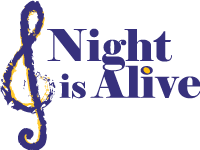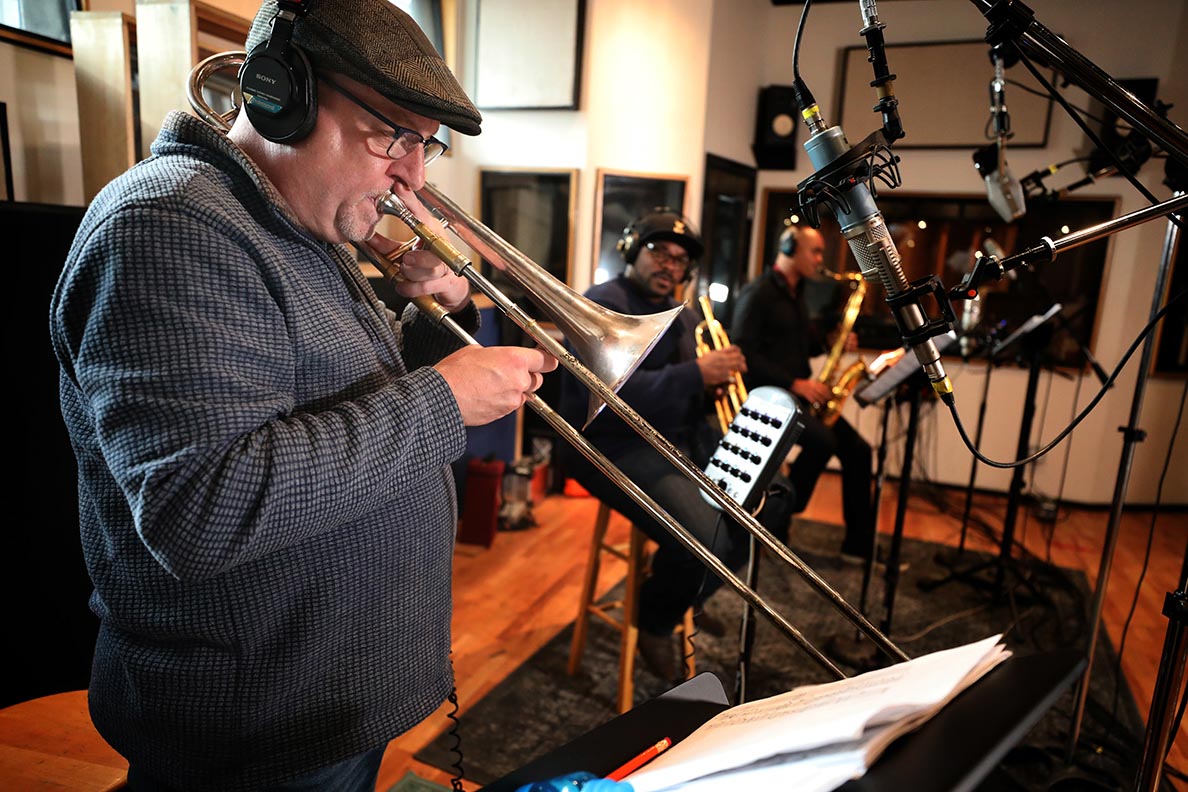Feature Friday Q&A with Steve Davis (Part II)
Happy Friday! We’re back to continue the conversation with the wonderful Steve Davis, who is a jazz trombonist & music educator. If you missed last week’s post, please check it out here.
JK: When you were a child, did you dream of becoming a trombonist?
Stevie-D: You know not initially, I just loved music. Another story about my nana—when I was six years old, my brother was maybe 2. I have a great memory of a visit and my brother and I are watching Tom and Jerry reruns and there’s one episode where Jerry is running away from Tom, running around the orchestra, trying to get away from Tom and Tom is on the piano and he’s on all fours and he’s playing doodle-doodle-doodle, like the left hand of a stride piano—what my nana calls the boogie-woogie—she would start playing doodle-doodle-doodle, so I loved that. Maybe it reminded me of my nana’s playing, I don’t know. So one day we were visiting and it was quiet and I made my way to the piano and I had no idea what I was doing and took my index finger and I went down to the base of the piano, down low, and I played a C—I didn’t know what a C was but I played it, and I don’t know how I knew this, and my nana came running in from the other room and she shouted to my mother named Syd—Sydney—and she said, “Did you hear little Stevie!? He made the change; he made the change!” The change is the fourth chord of the blues, and I had no idea at 6 years old what making the change was, but I sure felt special. So, that moment, I think, I knew something, I love music. I knew I was a musician right then. This is something I can relate to; I can bond with this. I just love music and I played a little electric bass, electric guitar, and the trumpet, and baritone horn, and when I got to the trombone, I was listening to jazz by then—my dad’s Blue Note Records—and I heard a great record by Lee Morgan. Most or any jazz fans know—called “The Sidewinder.” It’s just so funky and incredible and swinging and great, and I asked my father, what’s that? He said, oh, that’s Lee Morgan, that’s funk before funk. I said, I love that, and he said if you like that you might like these, and he made me a list— Horace Silver, Art Blakey and the Messengers, Dexter Gordon, Miles Davis, and then I was gone. Like wow. I just went into the world of jazz. And then I heard J.J. Johnson on the trombone on a Horace Silver record, called “The Cape Verdean Blues,” and I was like that’s the trombone? The trombone can sound like that?! And I was done for, that’s it.
JK: So, would you say that you accomplished your childhood dreams?
Stevie-D: Wow. I guess so. I played with so many of my heroes and many of whom aren’t with us anymore and you know I still feel pretty young—I feel like that skinny kid with hair, like a teenager or in my early 20s. And I met Jackie McLean at the Hartt School at 18. I attended school there in the mid to late 80s and he was a huge mentor for me and recommended me to Art Blakey and when I graduated, I moved to New York and became a Jazz Messenger—the last Jazz Messenger. In 1990, I did my first tours, and it all kinda just went from there—playing with Jackie McLean’s band after that for 6 years, and Chic Corea and several of his great bands over the years—Jimmy Heath, Penny Golson, James Moody and Freddy Hubbard and I’m like wow. I’m looking back now, and thinking was that me? Was I really there for all that? And meeting Slyde Hampton and Curtis Fuller—my heroes. Having them encourage me along and just being in their midst. Now, yeah, I can actually realize my dreams in that way and now every time I get to play music.
I just worked with Willie Jones III these past four nights at Dizzy’s in New York with one of his great sextets—he’s so masterful at putting groups together and I’ve always enjoyed playing with him. Of course, he’s a great drummer, but just the way he goes about assembling a band—he’s so smooth and he really knows what he’s doing and it’s just a pleasure every time, so that’s a dream come true. And playing with my peers and playing with younger musicians who used to be students and now they’re great new voices in the music—that’s a dream come true. It’s all wonderful. My. children play music—my son Tony is quite an accomplished guitarist in New York. He’s 28 now and I don’t know how that happened. My … daughter Angie is doing music education at the Hartt School and she’s 21, she’s going to be a senior and my youngest, Mickey plays tenor sax, he’s 16, and I think he wants to major in Dexter Gordon when he goes to college—haha I’m joking—but yeah he loves music, so I’m so thrilled for them that they found it for themselves. And when I play with my wife Abena, she’s a great vocalist, we have a great time doing projects, so I’m just loving it all now and I will always draw on my influences and my mentors and try to pass it on the younger musicians.
JK: Wow, that’s wonderful! It sounds like you’re really living the dream.
Stevie-D: Being a musician is not without its difficulties and there are times for all of us who do this where it’s a lot to manage. It can be difficult just keeping up with everything you have to do. Because jazz musicians by and large don’t have the support system that maybe other professions might have that, kind of built in. It is a wonderful community and we do all support each other. So whatever difficulties there are, I wouldn’t trade it for the world. I have to remember, wow I’ve actually been able to do this for 35 years as a professional. This is a blessing—it’s nothing but great.

